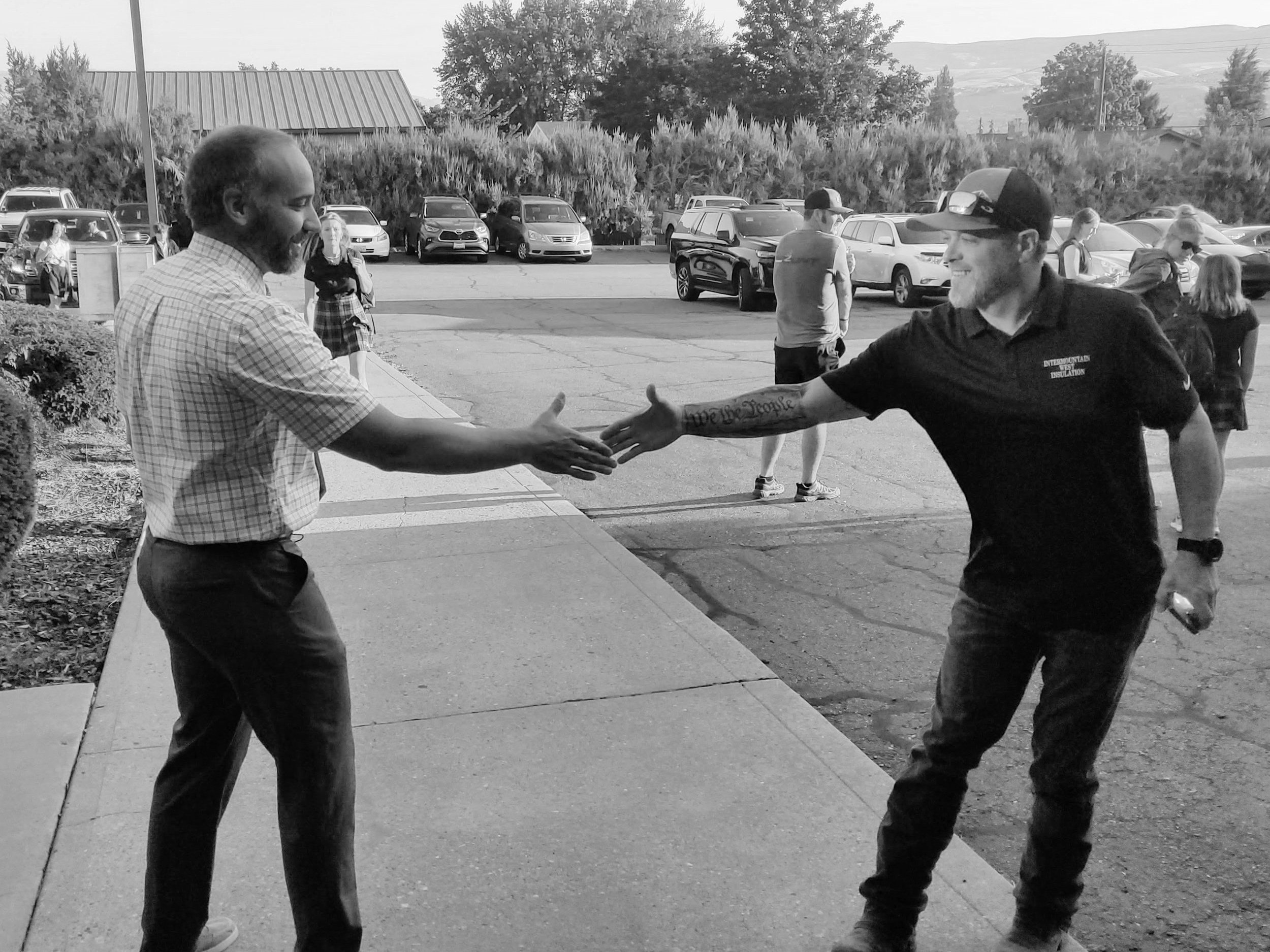Last week, we had our second Partnering with Parents night of the year. Our first was about True Grit, running the race with perseverance, while this time we talked about having a long view of education: not taking your child’s education in pieces, but looking at the end goal, the whole person to whom we hope to hand a diploma at the end of senior year. Have a long view of education, partnering with us along the way.
The River Academy’s Mission is “to partner with parents in educating their children to become the next generation of Christian leaders, equipped to shape culture through faithful, wise, and joyful Christian living,” by being “Thoroughly Christian, Innovatively Classical, Boldly Joyful, Intentionally Relational.” In other words, our primary goal is to produce students of character who have the skills to be lifelong learners, and who shape their communities with the love and grace of Christ. No matter what they do we want them to be critical thinkers who express themselves winningly, leading wherever they are. They need to be able to think, write, and speak well and to defend their faith.
I often think of these words from Ben Franklin, ruminating on the purpose of education for the public good: “Nothing is more important for the public wealth than to form and train youth in wisdom and virtue. Only a virtuous people are capable of freedom.” Yes, we are teaching your children how to do math, how to read, how to write, how to mix chemicals (safely) and identify formulas. But more importantly–most importantly–we hope that your children leave The River Academy at the end of their senior year loving the Lord, knowing that there is objective Truth supporting them, speaking and defending their faith, and demonstrating the love of the Lord in their communities–wherever they go.
So, we want to have a long view of education with that context in mind. If you’ve got a third grader–why keep him or her here until 12th grade, with all the challenges and difficulties that life throws at us? Traditional schooling views the student grade by grade, compartmentalized–did you pass your standardized test at the end of the year?—whereas we seek to educate the whole child: heart, body, soul, and mind. We see your child as more than a third grader–what will he or she look like as a seventh grader, a junior, a senior? No matter what they do, we want them to be critical thinkers who demonstrate virtue and express themselves winningly, leading wherever they are. They need to be able to think, write, and speak well and defend their faith, as well as learn how to love people well. Moreover, working through hard things with a small group of people, led by mature Christian teachers, helps them love and work well with people who are different from them, which is something the panel parents mentioned repeatedly as a reason to keep kids here through senior year.
A complete classical education points toward the end, the bearing of fruit after laying down deep roots and cultivating the soil with dialectics and great books and discussions. The eleventh and twelfth grade years are the capstone years at TRA–they capitalize upon everything that came before in all respects, and it’s where those elements all come together. The higher level math and sciences bring together all the building blocks of reasoning and thought that they’ve laid out; rhetoric, apologetics, and humane letters all intertwine thematically, eliciting some of the most amazing, awe-inspiring discussions and speeches you’ll ever see. These last two years ready your children to step forth into the world and engage with whatever it throws at them.
Classical methods have the greatest impact when a child enjoys a K-12 education (pulling a child out early doesn't allow the true fruit of classical education to be fully enjoyed). From root to trunk to leaf and fruit–stay with us, fight that good fight, and see the fruit that God is growing, even now when your child is in early elementary (or those chaotic early middle school years!). According to our panelists, it will be worth it.





